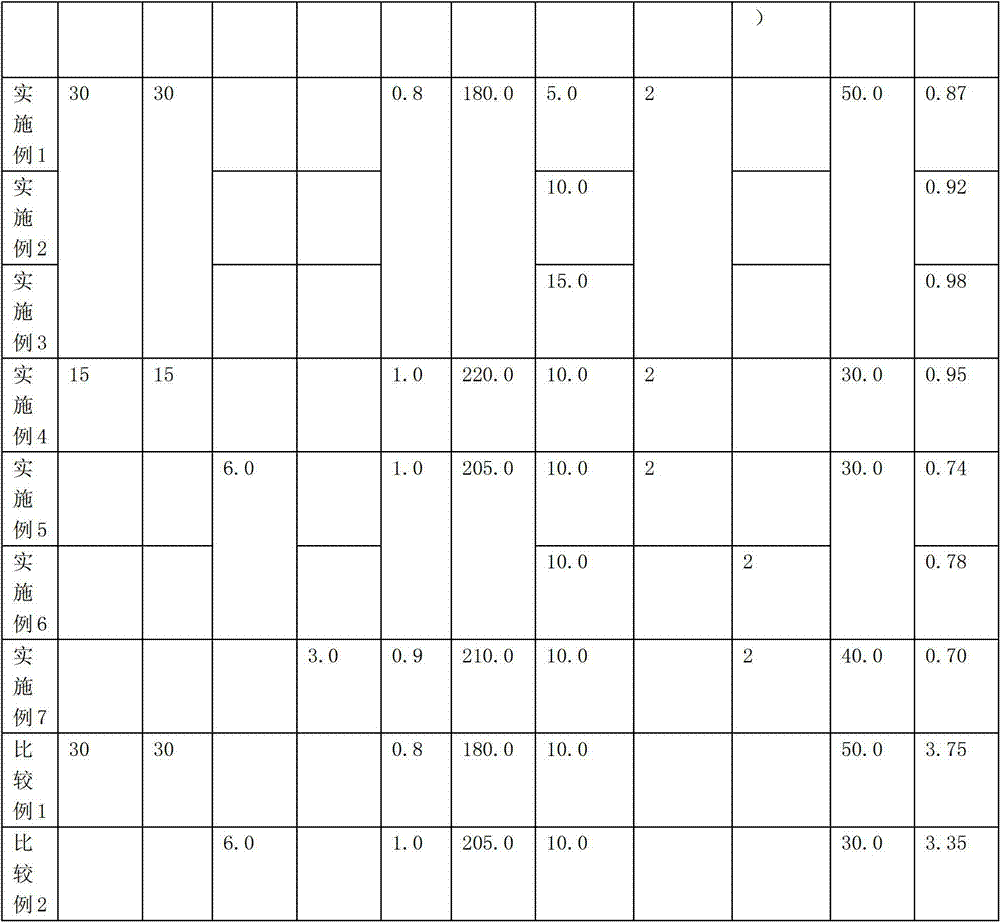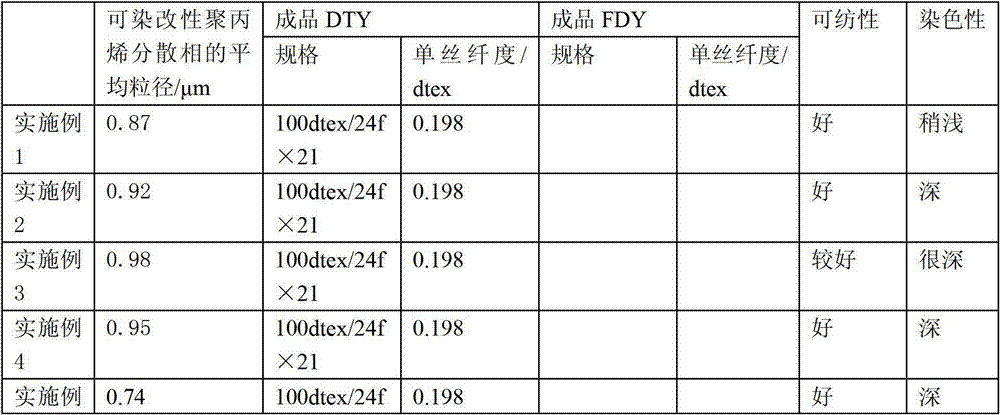Method for preparing superfine dyeable polypropylene fiber by sea-island composite spinning method
A polypropylene fiber and composite spinning technology, applied in the direction of conjugated synthetic polymer man-made filaments, etc., can solve the problems of no practical value of fibers, decreased mechanical properties, decreased spinnability, etc., and achieves improved spinning processing performance, Improve compatibility and reduce the effect of melting point difference
- Summary
- Abstract
- Description
- Claims
- Application Information
AI Technical Summary
Problems solved by technology
Method used
Image
Examples
Embodiment 1
[0018] A method for preparing superfine dyeable polypropylene fibers by the sea-island composite spinning method in this embodiment includes the following steps: 1) First, by combining melt polycondensation and solid-state polycondensation, terephthalic acid, ethylene glycol As a raw material, the molar ratio of terephthalic acid to ethylene glycol is 1:1.2; add adipic acid accounting for 30% of the molar percentage of terephthalic acid and 1 , 4-butanediol, to synthesize a copolyester with a melting point of 180°C and an intrinsic viscosity of 0.4dl / g; then subject the copolyester to solid-state polycondensation for 36 hours at 170°C and a vacuum of less than 1kpa, and further Increase the intrinsic viscosity to 0.8dl / g, a copolyester additive with a melting point of 180°C; 2) The intrinsic viscosity prepared in step 1) that accounts for 5% of the total weight percentage of the additive, compatibilizer and polypropylene resin Be 0.8dl / g copolyester additive and account for ad...
Embodiment 2
[0021] The preparation steps of the present embodiment are basically the same as in Example 1, except that the copolyester with an intrinsic viscosity of 0.8dl / g accounting for 10% of the total weight percentage of the additive, compatibilizer and polypropylene resin accounts for the additive, compatibilizer and polypropylene resin. EPDM-g-MAH with a total weight percentage of 2% of the compatibilizer and polypropylene resin and polypropylene resin with a melt index of 50g / 10min are blended and granulated at 200°C through a twin-screw extruder to obtain a dyeable Modified polypropylene resin, the measured average particle size of the dispersed phase is 0.92 μm. See Table 1, which is a table showing the preparation process and results of the dyeable modified polypropylene resin in the embodiment of the present invention. The weight ratio of dyeable modified polypropylene resin to nylon is 70:30. A pre-oriented yarn (POY) of 180 dtex / 24f x 21 islands was produced. The POY is t...
Embodiment 3
[0024] The preparation procedure of the present embodiment is basically the same as that of Example 1, the difference being: the copolyester with an intrinsic viscosity of 0.8dl / g accounting for 15% of the total weight percentage of additives, compatibilizers and polypropylene resins, accounting for additives, compatibilizers and polypropylene resins, EPDM-g-MAH with a total weight percentage of 2% of the compatibilizer and polypropylene resin and polypropylene resin with a melt index of 50g / 10min are blended and granulated at 220°C through a twin-screw extruder to obtain a dyeable Modified polypropylene resin, the measured average particle size of the dispersed phase is 0.98 μm. See Table 1, which is a table showing the preparation process and results of the dyeable modified polypropylene resin in the embodiment of the present invention. The weight ratio of dyeable modified polypropylene resin to nylon is 75:25. A pre-oriented yarn (POY) of 180 dtex / 24f x 21 islands was prod...
PUM
| Property | Measurement | Unit |
|---|---|---|
| melt flow index | aaaaa | aaaaa |
| melting point | aaaaa | aaaaa |
| particle diameter | aaaaa | aaaaa |
Abstract
Description
Claims
Application Information
 Login to View More
Login to View More - R&D Engineer
- R&D Manager
- IP Professional
- Industry Leading Data Capabilities
- Powerful AI technology
- Patent DNA Extraction
Browse by: Latest US Patents, China's latest patents, Technical Efficacy Thesaurus, Application Domain, Technology Topic, Popular Technical Reports.
© 2024 PatSnap. All rights reserved.Legal|Privacy policy|Modern Slavery Act Transparency Statement|Sitemap|About US| Contact US: help@patsnap.com










